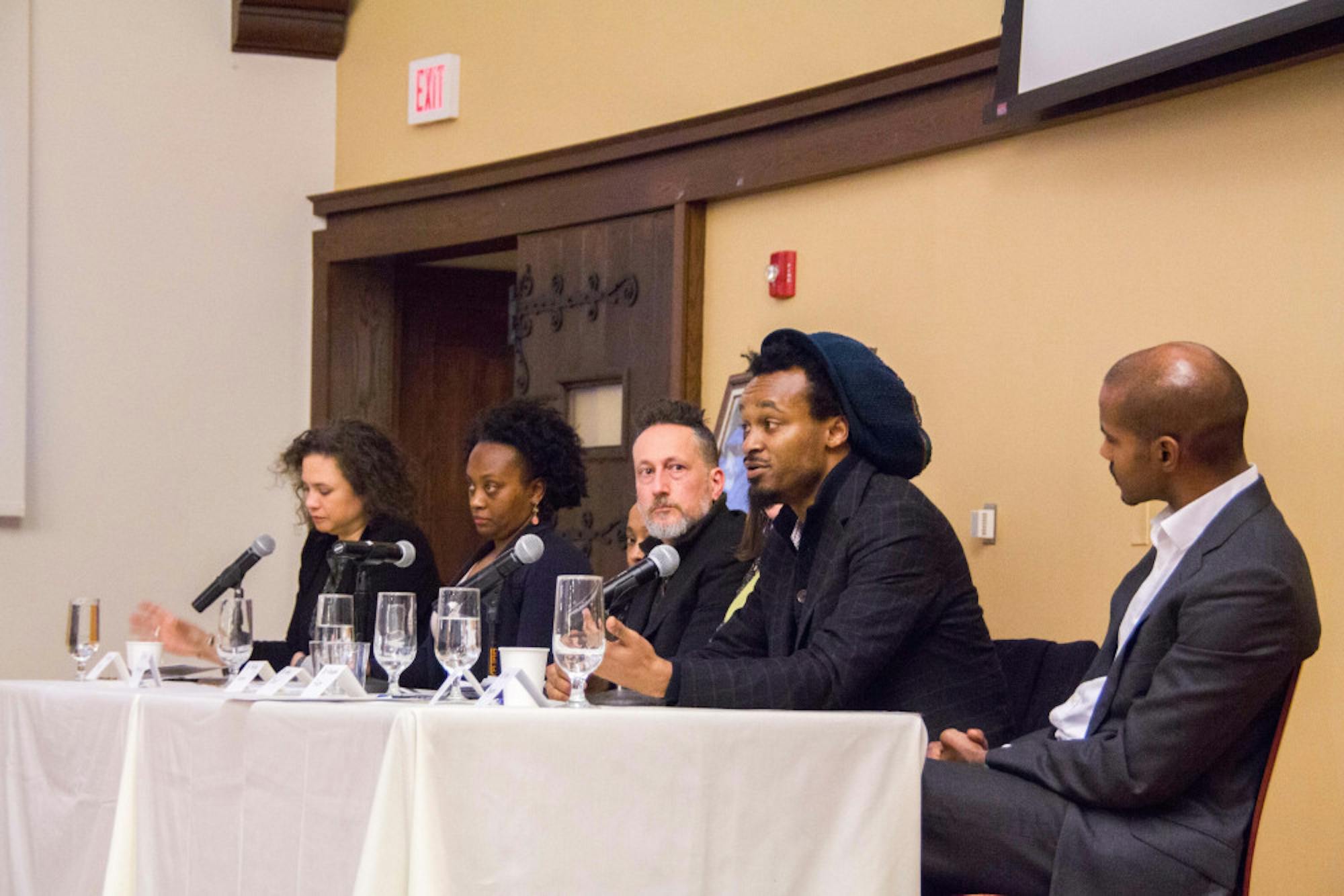Tufts' annual celebration of Martin Luther King, Jr. was held on Monday afternoon in Breed Memorial Hall. This year, the event was organized as a symposium, and more than a dozen speakers and panelists discussed King's legacy under the theme of "Where Do We Go From Here: Chaos or Community?"
The symposium was sponsored by the Africana Center, the University Chaplaincy, the Center for the Study of Race and Democracy, Jonathan M. Tisch College of Civic Life, the Office of the President and the Office of the Provost, as well as other sponsors, according to the event’s brochure.
"[I was] very pleased with the outcome of the program in terms of the content and the turnout from the Tufts community, with a standing-room-only crowd and a wide cross-section of the university including many faculty, staff and students," Tufts University Chaplain Gregory McGonigle told the Daily in an email. "[The symposium] was also aired on local television and live-streamed on the web so that colleagues on all Tufts campuses and folks in the community could participate.”
He also encouraged students to participate in Tufts' Martin Luther King Day of Service, which will be this upcoming Saturday.
“We hope that [the symposium] served to help educate people about the crucial ongoing issue of civil rights and to provide ideas and opportunities for getting more involved in civil rights and community engagement,” McGonigle wrote.
During the symposium, there were two panels of speakers. The first panel, titled “How Did We Get Here?” consisted of many professors from both Tufts and other Boston-area schools.
The professors who spoke during the panel were Kerri Greenidge, Elizabeth Foster, Kendra Field and Kris Manjapra from Tufts, as well as Vivek Bald from the Massachusetts Institute of Technology, Ashley Farmer from Boston University and Greg Childs from Brandeis University. Field and Manjapra moderated the panel.
Greenidge, a lecturer of African-American history, said that she was encouraged by the number of people who attended Women's Marches on Saturday, but she hopes that that energy can be sustained.
"The importance of [the] Women's March is recognizing that conversations about black and white feminism have been had before," Greenidge said. "We are not in a new conversation."
Foster, an associate professor of history, added her desire and hope for future protest opportunities during Donald Trump's incoming presidential administration.
After a short break, the second panel, titled “Where Do We Go From Here?,” featured organizers and activists from the Greater Boston area. Panelists included Alternatives for Community and Environment Executive Director Kalila Barnett, Boston City Councilor Tito Jackson, Boston NAACP incoming President Tanisha Sullivan and Tisch College Director of Community Partnerships Shirley Mark. Mark moderated the panel.
“The issues that plague our community are really women’s issues,” Sullivan said.
Sullivan then criticized the press' reporting of the march because coverage did not show very many people of color.
“Where are the colored women in the march?” she asked. "Colored folks were there."
Following an intermission and a video presentation featuring student interviews, University President Anthony Monaco spoke about how he believes Martin Luther King, Jr.’s call to action is now as timely as ever.
Monaco added that Tufts administrators are also concerned about diversity and inclusion. He said that he instructed the newly-formed Student Life Review Committee to look into how those issues manifest themselves on the Tufts campus.
“Our commitment to diversity and inclusion must give every member of our community the opportunity to grow and thrive,” Monaco said. “And it must be reflected across our administrative efforts.”
Next, Africana Center DirectorKatrina Moore introduced keynote speaker Rev.Jennifer Bailey (LA’ 09), the executive director of the Faith Matters Network, an organization focused on seeking justice for marginalized people of faith.
Bailey invoked King’s seminal anti-Vietnam War speech at Riverside Church in 1967, during which he called for a “radical revolution of values.” She contended that, almost 50 years later, the United States is in need of transformation again.
Bailey argued that Trump’s electoral victory in November 2016 exposed a serious rupture in American democracy and civil society, and was a continuation of ongoing racial violence and injustice. For that reason, she said, the nation is currently in a period of rebuilding.
“Justice has never been given freely to us," she said. "It’s always required sacrifice ... yet we also know the American Dream has always been a destination and not an aspiration.”
Bailey called for people to continue working toward progress, in spite of continued struggle and feelings of hopelessness. In response to the theme of the event, she encouraged community-building as a way to repair the damage to the country.
According to Bailey, this community-building can take multiple forms: some people will seek collective healing through what she called “brave spaces,” while others should try to reach out and unify with people of different racial and ideological backgrounds.
"What ills our nation will not be solved by electoral politics -- but that is important," she said. "It can only be solved by strengthening our relationships to one another.”
Joe Walsh contributed reporting to this article.
Martin Luther King Jr. Symposium features speakers from Greater Boston area






